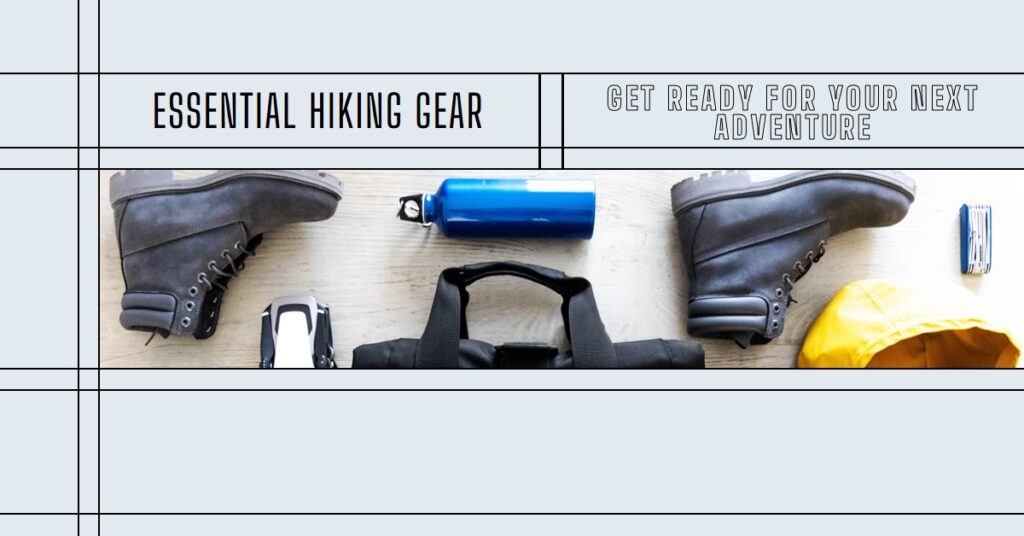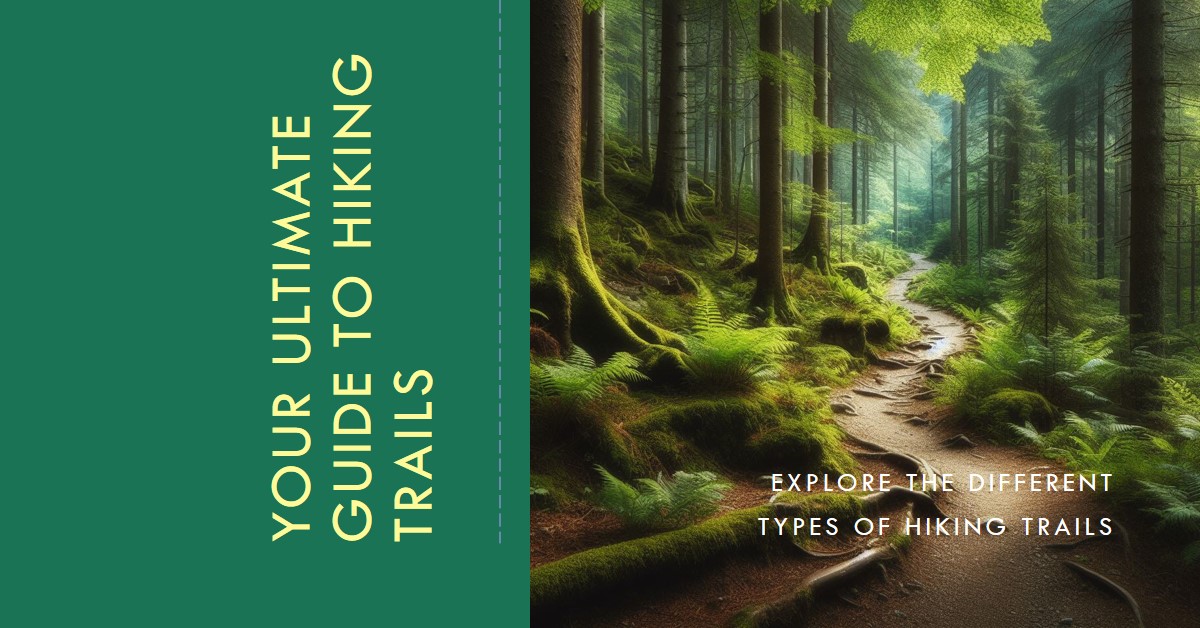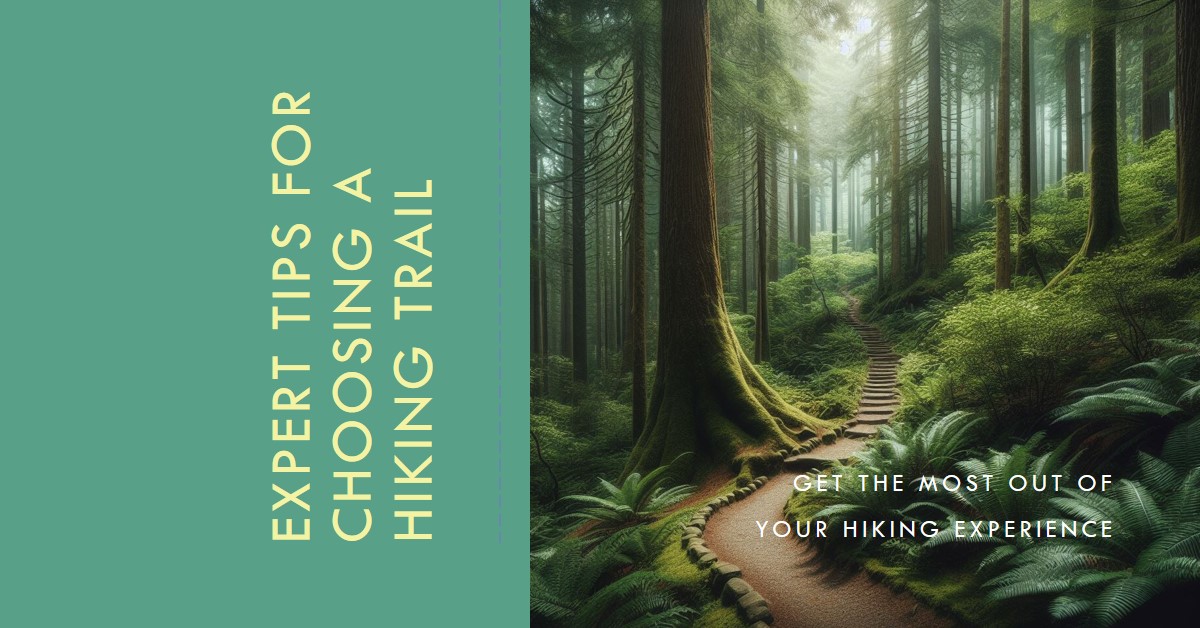Table of Contents
Mastering the Trail: The Imperative Guide to Essential Hiking Gear
A successful hike is a product of preparation, and the linchpin of that preparation is having the right gear at the ready. Ensuring youre well-equipped is fundamental for an enjoyable and secure outdoor adventure.
Equipping for Enlightened Exploration
From investing in sturdy hiking shoes to securing a reliable satellite communicator, each piece of equipment plays its part in your adventure on the trails. Let’s embark on a comprehensive journey through all the essentials.
1. Supportive and Durable Footwear: A Hiker’s Bestfriend
Investing in high-quality hiking footwear is analogous to laying a firm foundation for your hike. The right type of shoes provides critical support and protection to your feet, ensuring a secure and enjoyable hiking experience. The choice varies from hiking boots, trail shoes, to walking sandals, each presenting a unique set of benefits and features.
To select the perfect fit, consider the nature of your journey: the route you’ll be taking, the kind of terrain you’ll encounter, and your specific hiking needs. A quality pair of hiking shoes won’t only protect your feet; they’ll play a vital part in contributing to your triumphant hiking escapade.
2. Staying Connected in Remote Corners: Satellite Communicators
A satellite communicator is an integral part of your hiking gear. Not merely a gadget but a lifesaver, it allows hikers to remain connected, send and receive messages, and in dire situations –– summon help.
Models like the Garmin inReach Mini, SPOT X, and BivyStick offer two-way messaging, GPS tracking, and SOS features. Choose one that suits your requirements and budget – this vital piece of kit is invaluable for a connected and safer hiking experience.
3. Exemplary Comfort and Durability: Hiking Backpacks
Choosing the right backpack for hiking means balancing capacity, weight, durability, and storage flexibility. A well-fitted backpack evenly distributes weight, sparing your back and shoulders unnecessary strain. Your hiking duration and carrying capacity determine pack size: for daylong hikes, go for 20-30 liters, while multi-day hikes demand greater than 40 liters.
4. Hydrate for Health: Essential Hydration Gear
Staying hydrated is a non-negotiable, key part of any outdoor activity, particularly hikes. Regular water intake replaces the water you lose through sweating and breath and hence, packing a well-sealed water bottle or hydration pack is paramount.
5. Balancing Act: The Merits of Trekking Poles
Trekking poles assist in weight distribution, reducing strain on your legs and joints. Lightweight yet sturdy, they offer stability on rough terrains, enabling you to cover larger areas with increased efficiency.
6. Essential Organization for Effortless Access
Organization in your equipment arsenal is paramount as it provides easy access to your tools, minimizes the risk of loss or damage and increases mobility. A system that assigns a specific location to each piece of equiptment ensures a smooth nad enjoyable walk.
7. Browse with Confidence: Trusted Navigation Tools
GPS devices and smartphone apps are useful, but a traditional map and compass are essential, especially if technology doesn’t work. These timeless tools safely guide you to your desired destination and assist you with navigation, deciphering topographic maps, determining direction, and interpreting contour lines.
8. Power your adventure: think about your battery options
Equip yourself with the right batteries, whether alkaline, lithium or rechargeable; Each plays an important role in powering your equipment and ensuring a constant supply of energy during your hike.
9. Light your way: your reliable headlamp
A headlamp is a mandatory part of your hiking gear and provides hands-free lighting. Whether you’re navigating dark trails, setting up camp, or reading in your tent late at night, a headlamp is a must.
10. must.
10. Fuel for the trip: nutritious and tasty trail meals
Meeting your nutritional needs while walking is crucial. Carrying protein-rich snacks, lightly dried fruits and vegetables, packets of nut butter, and trail mixes can dramatically improve your stamina and your overall hiking experience.
eleven. Layer up to stay comfortable outdoors – select the right hiking clothing
Proper layering and wearing appropriate fabrics are essential to regulate body temperature and ensure comfort while walking. The right hiking clothing combines comfort and longevity and promises a rewarding hiking experience.
12. Protection from the elements: essential protective equipment
Protective gear protects you from the sun, bugs and harsh weather conditions, which is essential for a safe hike. WEaring essentials like sunglasses, UVP clothing, a wide-brimmed hat, and a sunscreen with a high SPF will prevent sunburn and long-term skin damage.
13. Value for Money: REI Membership Benefits
REI membership offers a number of benefits, including exclusive discounts and perks, that improve financial accessibility for outdoor enthusiasts. It also provides access to exclusive events, workshops and classes, giving you information on equipment selection and use.
14. Preventive rain shield: waterproof rain clothing
A waterproof jacket and pants are essential to protect you form unexpected rain and weather changes in the wild and to ensure your comfort and safety during the hike.
fifteen. Prepare for the unexpected: well-equipped survival kits
A survival kit with all the necessary items is essential on a hiking trip. Such a kit provides better preparation for any unforeseen circumstances, including a map, compass, headlamp, water purification tablets, emergency food rations, and a signal mirror for emergency assistance.
sixteen. Embark on a day hike: essential equipment
A day hike requires essential equipment: water, water filters, hiking food, suitable clothing, a good hat, stable trekking poles, sunglasses and a sturdy first aid kit. Arming yourself with these items will ensure a safe and engaging hiking experience.
17. Money Checklist: Essential Gear for 7-Day Hikes
For a 7-day trek, be prepared to carry extra clothing, water purification tools, more sun protection, a well-stocked first aid kit, multi-function tools, repair kits, and extra food and meals.
18. Gear Preparation: The Path to Hiking Success
Ensuring your equipment arsenal is complete and reliable will pave the way for a safe and memorable hiking experience. From sturdy footwear to a life-saving first aid kit, each item plays a crucial role in ensuring your safety and comfort on the trails.
So before you lace up your boots for that long-awaited hike, evaluate your gear. Make sure your hiking backpack is filled with essentials, your clothing is weather-resistant, and youre prepared for any situation. With the right equipment, your hiking saga will become an unforgettable spectacle! Have fun walking!














